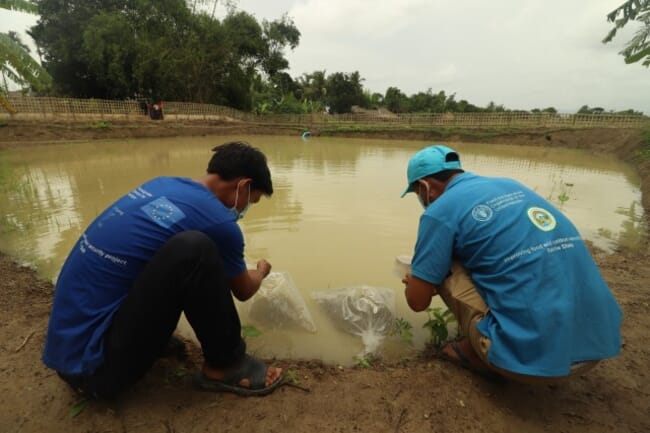The region, on the west coast of Myanmar, was chosen after a protracted conflict that has continued to drive displacement and disrupt livelihoods since 2012. This has compounded the impact of floods, cyclones and earthquakes, which hamper rice production in low-lying areas - as a result, 40 percent of households in the state are food insecure.

© Chan Aye Naing, FAO
As a result, FAO explains that the two organisations have rehabilitated 60 fish ponds and constructed 37 new ones in Buthidaung and Maungdaw Townships, directly benefiting 97 households. Each beneficiary household received aquaculture training, as well as a package of inputs, including materials for bamboo fencing, nets, 900 fingerlings and three months’ supply of rice bran.
FAO conducted the construction and rehabilitation activities of the fish ponds through cash for work (CfW) to support the targeted communities in meeting their immediate household needs and reduce their adoption of negative coping mechanisms. A total of 878 CfW beneficiaries (25 percent Rakhine and 75 percent Rohingya) participated in CfW activities. Each CfW beneficiary worked for an average of nine days and earned US $56. As a result of the intervention, according to the FAO, each beneficiary household will harvest up to 450 kg of fish per year. This will be used for household consumption, while excess can be supplied in the local market to generate income.
“This will significantly contribute to improving households’ food security and strengthening their livelihoods resilience,” FAO concludes in a statement.



